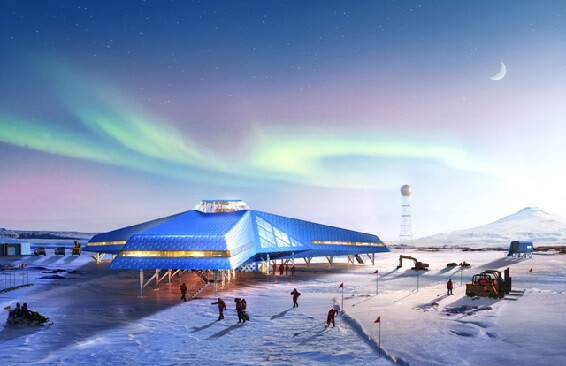
The Korea Polar Research Institute (KOPRI) announced on February 14th that its Jangbogo Research Station in Antarctica recorded the highest January temperature ever last month, reaching a peak of 8.1 degrees Celsius. This surpasses the previous record of 6.7 degrees Celsius set in January 2021.
The unseasonably warm weather persisted throughout January, with the daily high exceeding 7 degrees Celsius on four separate days. The average temperature for the month also reached a record high of -0.3 degrees Celsius, matching the previous warmest January recorded in 2020.
Jangbogo Station, located in the Southern Hemisphere, experiences its summer season during December and January, which is typically the warmest time of the year. However, the extreme temperatures observed this year are unprecedented.
KOPRI researchers attribute the unusual warmth to a combination of factors, including prolonged periods of sunny weather, low snow accumulation, and strong winds accompanied by the "foehn effect," where air is heated as it descends from mountain slopes.
Han Ji-hyeon, the station's logistics manager who is currently serving his second term at Jangbogo, noted a significant decrease in snow accumulation compared to his previous experience in 2018. He also observed frequent melting of snow and the formation of puddles, indicating the rapid pace of thawing.
A previous study by KOPRI researcher Choi Tae-jin's team, which analyzed weather data from Jangbogo Station between 2015 and 2022, found that changes in atmospheric circulation over the Ross Sea have increased the frequency of strong winds accompanied by the foehn effect, contributing to a steady rise in winter temperatures.
The highest temperature ever recorded at Jangbogo Station was 8.8 degrees Celsius, observed on March 18, 2022. This occurred during an extreme heat event in East Antarctica, where temperatures soared 30 to 40 degrees Celsius above normal.
KOPRI Director Shin Hyeong-cheol expressed concern over the recent series of unexpected and rapid changes in Antarctica's climate. He emphasized the institute's commitment to addressing climate change and fulfilling its research mission.
Jangbogo Station, established on February 12, 2014, is Korea's second Antarctic research base, following the King Sejong Station in West Antarctica. It is located in Terra Nova Bay, East Antarctica.
소스 및 관련 콘텐츠
[Copyright (c) Global Economic Times. All Rights Reserved.]






























